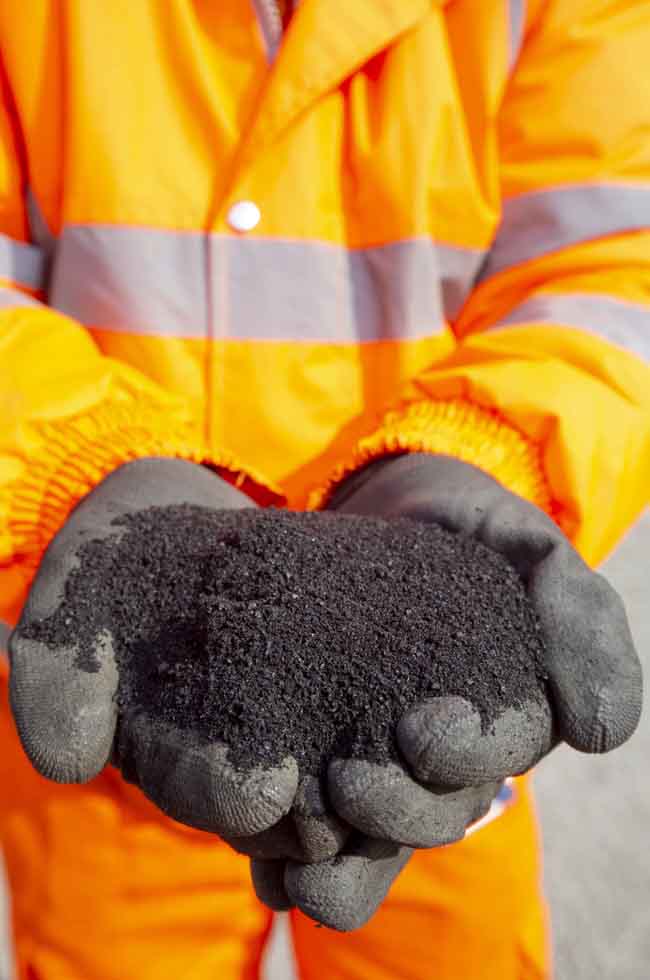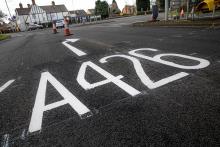
A new rubberised asphalt made out of recycled old tyres has been launched by
The major sustainable building materials and construction solutions business is the first in the UK to develop a new asphalt technology capable of recycling end-of-life tyres (ELTs) into roads.
With 40 million ELTs generated in Britain every year, the company has created an innovative asphalt mix using granulated rubber.
Tarmac estimates that it will be possible to recycle and reuse up to 750 ELTs for every kilometre of highway surfaced with the new material, depending on the thickness of the road, which would help to reduce the 120,000 tonnes of rubber waste exported from the UK annually.
The initiative is part of Tarmac’s commitment to the circular economy, with the business recycling 8.7 million tonnes of waste from other industries every year. It also builds on the company’s reuse of ELTs to power its cement kilns and its commitment as a net user of waste.
Brian Kent, technical director at Tarmac, said: “While plastic recycling has attracted media headlines, used tyres remain a significant and overlooked waste stream and our new innovative rubber modified asphalts offer a more sustainable option for our industry and the environment.
“Rubber is used in asphalt across the USA, but in the UK there is a lack of the necessary industrial infrastructure required to allow manufacture of this type of material. Against the backdrop of major investment in the strategic road network there is now an opportunity to leverage this technology and unlock the benefits of this circular economic approach.”
As part of recent trials of the new material, Tarmac supplied asphalt with rubber in Coventry.
Rob Little, senior engineer, Highways Technical, Coventry City Council, added: “Coventry City Council is delighted with the rubberised asphalt trial; we hope we can use more of the product across the city in the future to help divert waste tyres from landfill and incineration to reduce the carbon footprint for road construction projects in Coventry.
“We are proud to be leading with our partners,
There is also significant scope to recycle and reduce the UK’s dependence on the export of ELT’s to other countries.
Peter Taylor OBE, secretary general of the Tyre Recovery Association, commented: “While there has been significant progress in reusing and recycling waste tyres in the UK, there is still an over reliance on the export of used tyres to countries such as China, India and Pakistan, who are importing fewer tyres as they become self-sufficient.
“The UK needs a second disposal route for used tyres. Tarmac’s commitment to developing rubberised asphalt provides an excellent opportunity to achieve this and deliver environmental savings for this under-used waste stream.”






